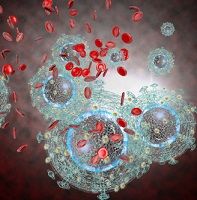Article
HIV Vaccine Needed to End Pandemic
Author(s):
NIAID emphasizes importance of an effective HIV vaccine to achieve a durable end to the HIV/AIDS pandemic.

Despite advancements in the treatment and prevention of human immunodeficiency virus (HIV), development of an effective HIV vaccine will likely be necessary to achieve a durable end to the HIV/AIDS pandemic.
With 36.7 million individuals living with HIV across the world, there’s a pressing need for an effective vaccine.
“However, from a practical standpoint, ending the HIV/AIDS pandemic without a vaccine is possible, although it is unlikely,” Anthony Fauci, MD, director, National Institute of Allergy and Infectious Diseases, said in a statement.
In theory, effective implementation of existing treatments and prevention methods could end the pandemic, specifically, 1 of the more than 30 highly effective anti-HIV drugs and strategies such as PReP.
When given in combinations of 3 of more, current medications can durably suppress HIV so that patients treated soon after and continue therapy, can expect to have an almost-normal life expectancy.
Substantial gaps remain despite progress in implementing HIV testing and treatment. Globally, more than 17 million people living with HIV do not receive antiretroviral therapy (ART), which is compounded by the continuing high rate of new infections — about 1.8 million worldwide in 2016 alone.
Studies have suggested geographic locations, particularly those in certain rural areas, make it difficult to reach those in need of treatment and prevention services. Aside from location, economic resources needed to leverage treatment and prevention across the globe continue to escalate as more and more become infected.
Recent advances in vaccine research suggest at least a moderately effective vaccine can be developed and could slow the pandemic if deployed with current treatment and efforts. It’s important to continue accelerating a robust research effort, while increasing the implementation of current treatment and prevention tools.
Modeling studies show that if current HIV treatment and prevention efforts are maintained, and a vaccine that is at least 50% is created and deployed, the pandemic could be controlled.
The Joint United Nations Program on HIV/AIDS (UNAIDS) set an ambitious target to assist in ending the pandemic. The “90-90-90” program set a goal to have 90% of the HIV-infected population receiving anti-HIV treatment, and 90% of people who receive treatment suppressing the virus, to reach undetectable levels by 2020.
If successful, it’s estimated that 73% of population with HIV would have undetectable levels. Models suggest, that since suppressed viral levels result in a marked reduction in the risk of HIV transmission to others, achieving the project goal would reverse the kinetics and trajectory of the disease for it to no longer be of pandemic magnitude.
To successfully end the pandemic, the resource requirements to achieve such a goal is continually growing. The 19.5 million people currently receiving anti-HIV drugs must be maintained on these medications for the rest of their lives, while anti-HIV drugs also need to be provided to the 17.2 million infected but untreated.
An HIV research center at The Scripps Research Institute was awarded a federal grant worth nearly $27 million for the continuation of studying the AIDS-causing virus. The HIV Interactions in Viral Evolution, HIVE, received the 5-year award from the National Institute of General Medical Sciences — a part of the National Institute of Health. The grant allows HIVE to continue studying HIV’s function at the atomic level.
A news release has been made available.




